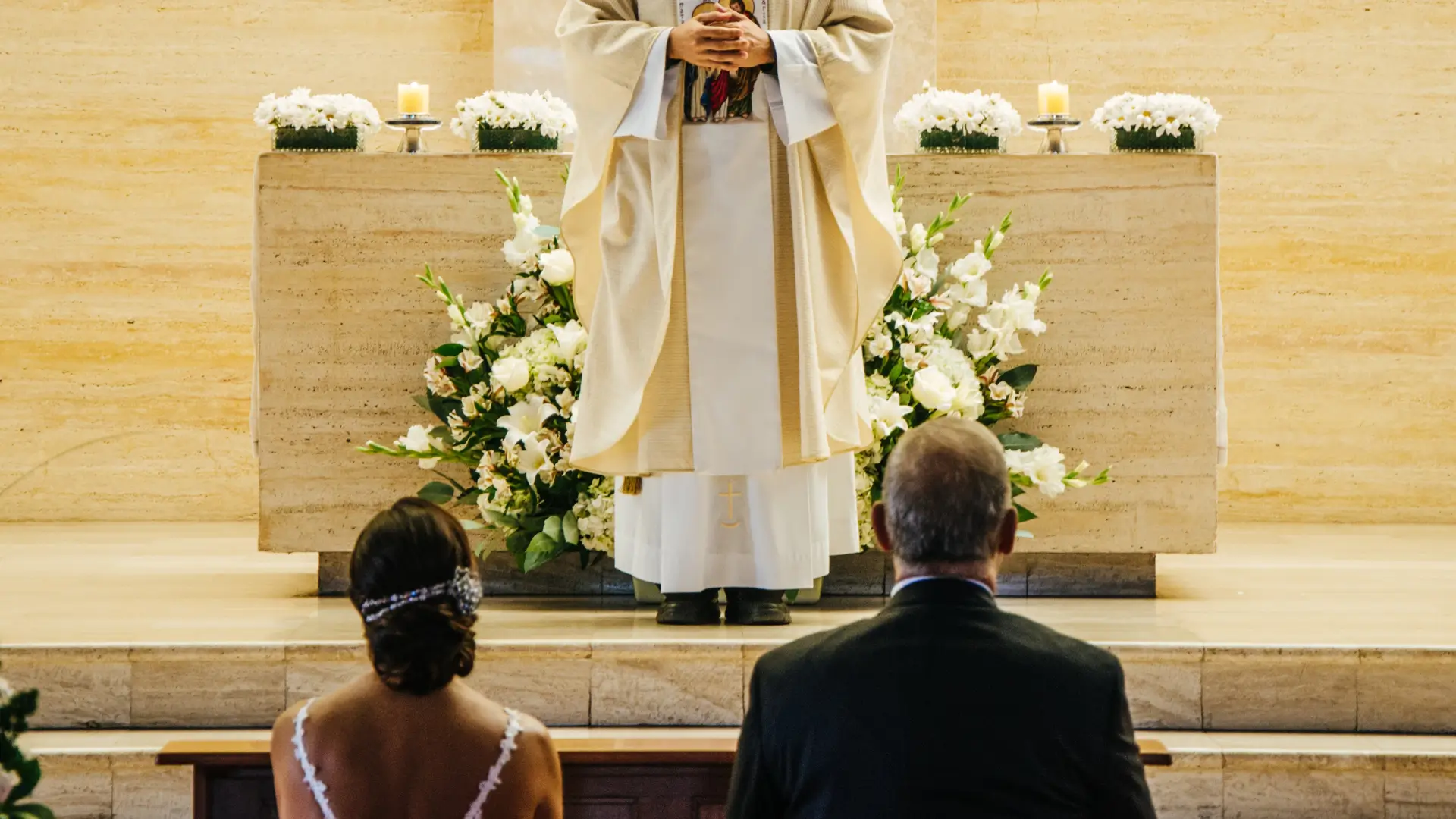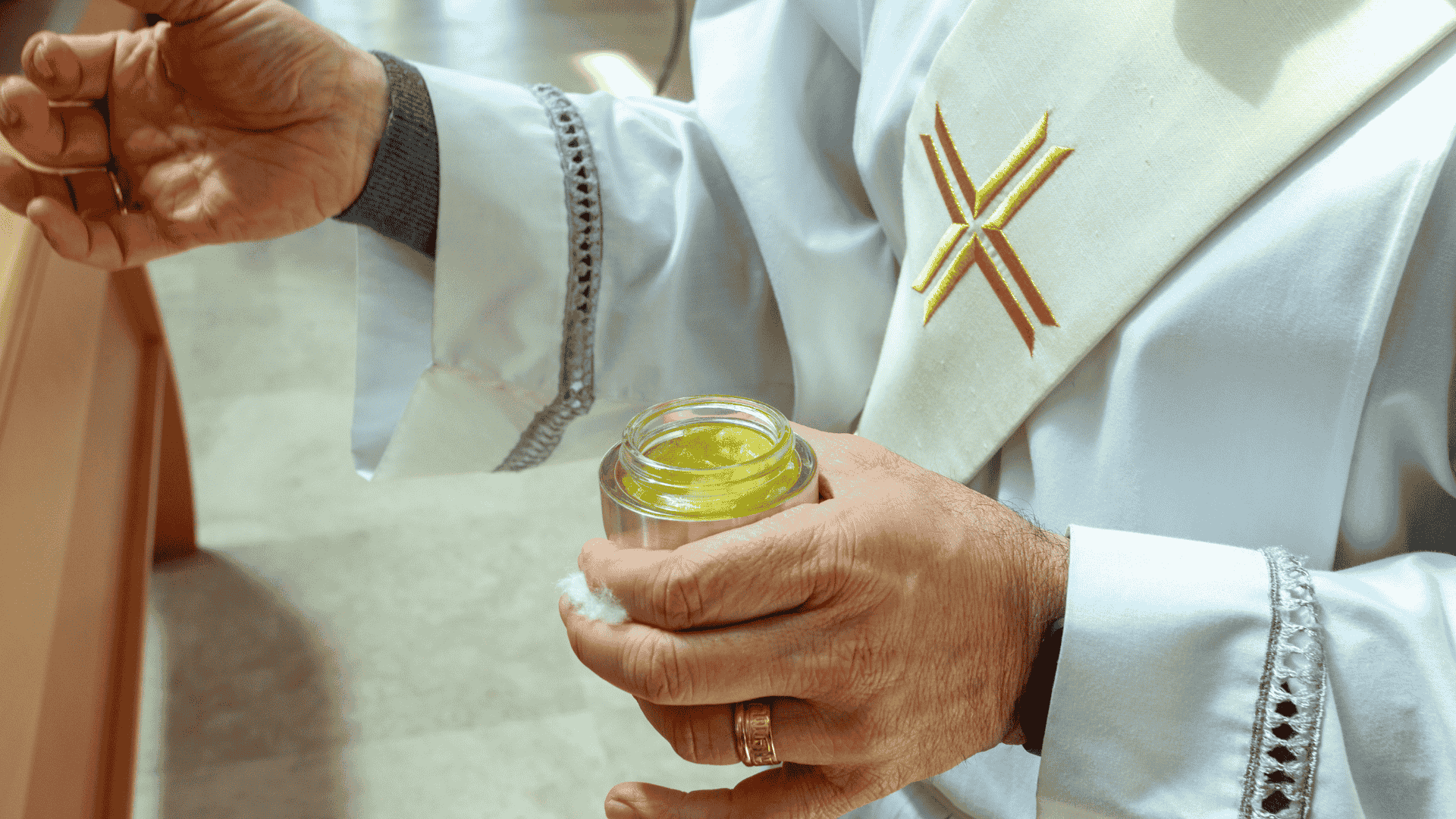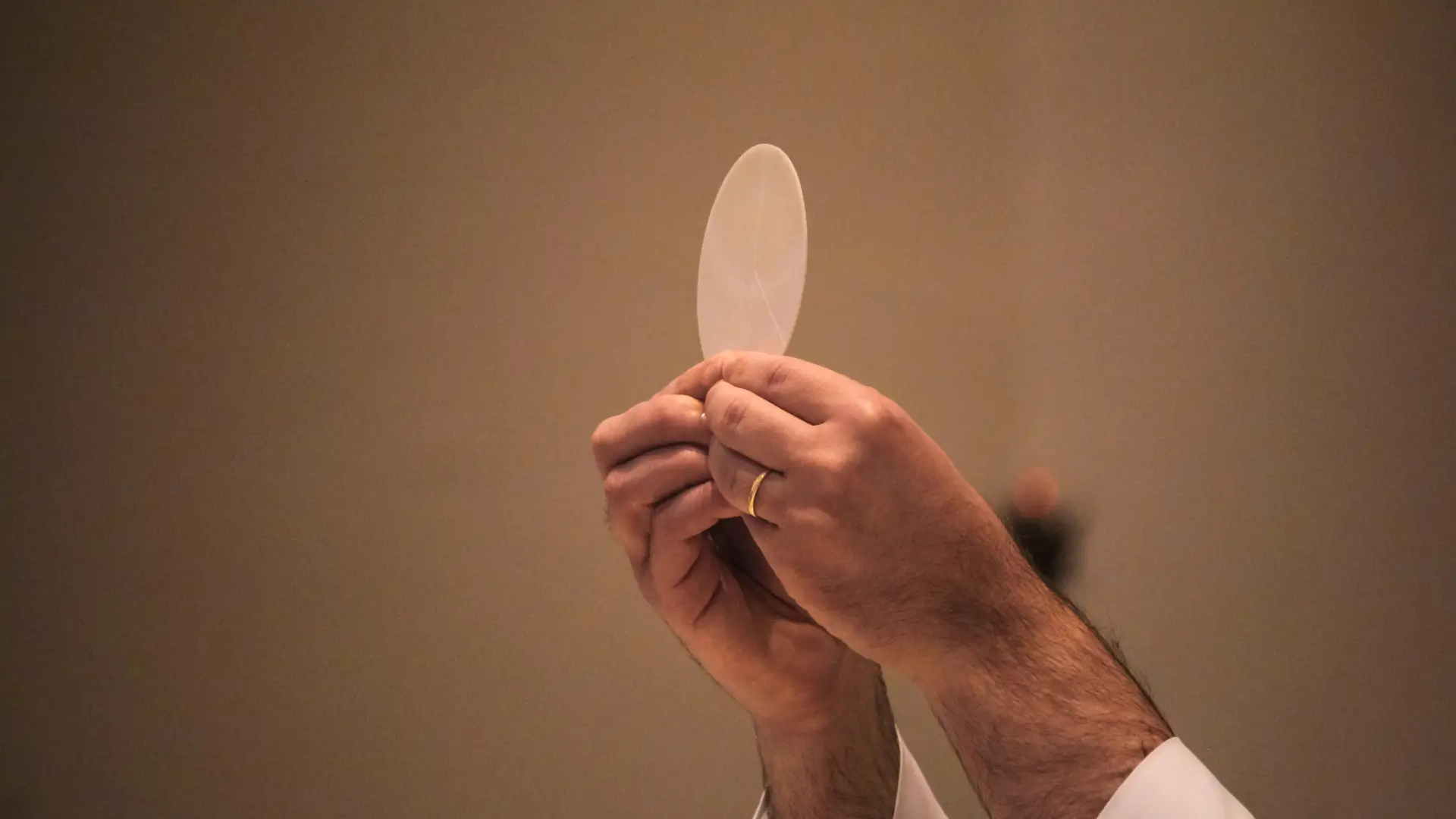The sacraments are central to the practice of the Catholic faith, serving as visible signs of God’s grace and presence in the lives of believers. Instituted by Jesus Christ, these seven sacraments are rituals that confer divine life and help the faithful grow spiritually. Each sacrament addresses different stages and needs in a Catholic’s journey of faith.
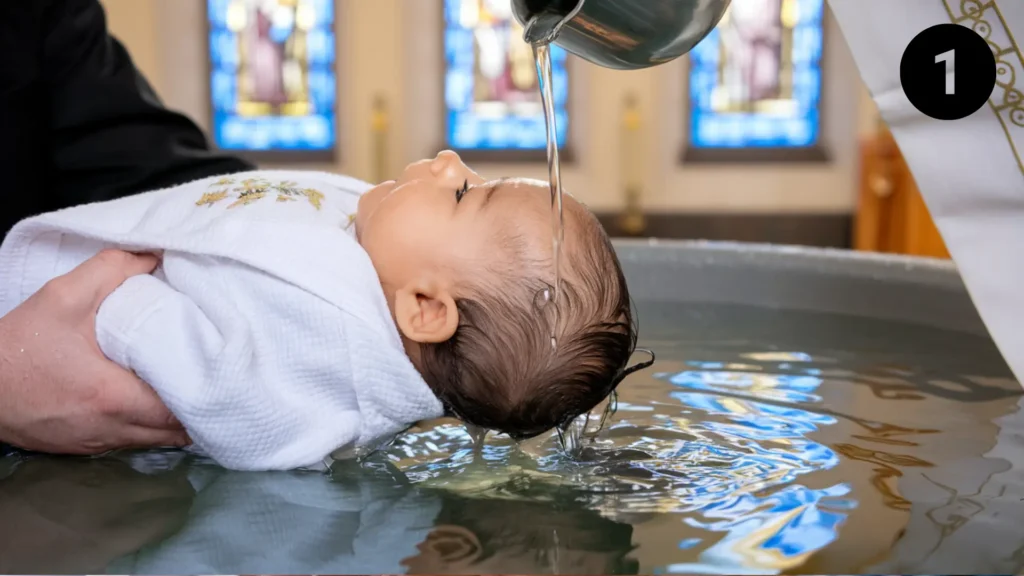
1. Baptism
Baptism is the first sacrament of initiation and marks the entry into the Christian community. It cleanses a person of original sin and personal sins, symbolizing spiritual rebirth. Typically performed with water, baptism signifies purification and the beginning of a new life in Christ. It lays the foundation for a lifelong commitment to follow Jesus.
Baptism usually occurs in infancy for those born into Catholic families, often within the first few months after birth. However, it can be received at any age for converts to the faith. The sacrament is typically administered by a priest or deacon, but in cases of emergency, anyone—even a non-baptized person—with the proper intention can baptize using water and the Trinitarian formula (“I baptize you in the name of the Father, and of the Son, and of the Holy Spirit”).
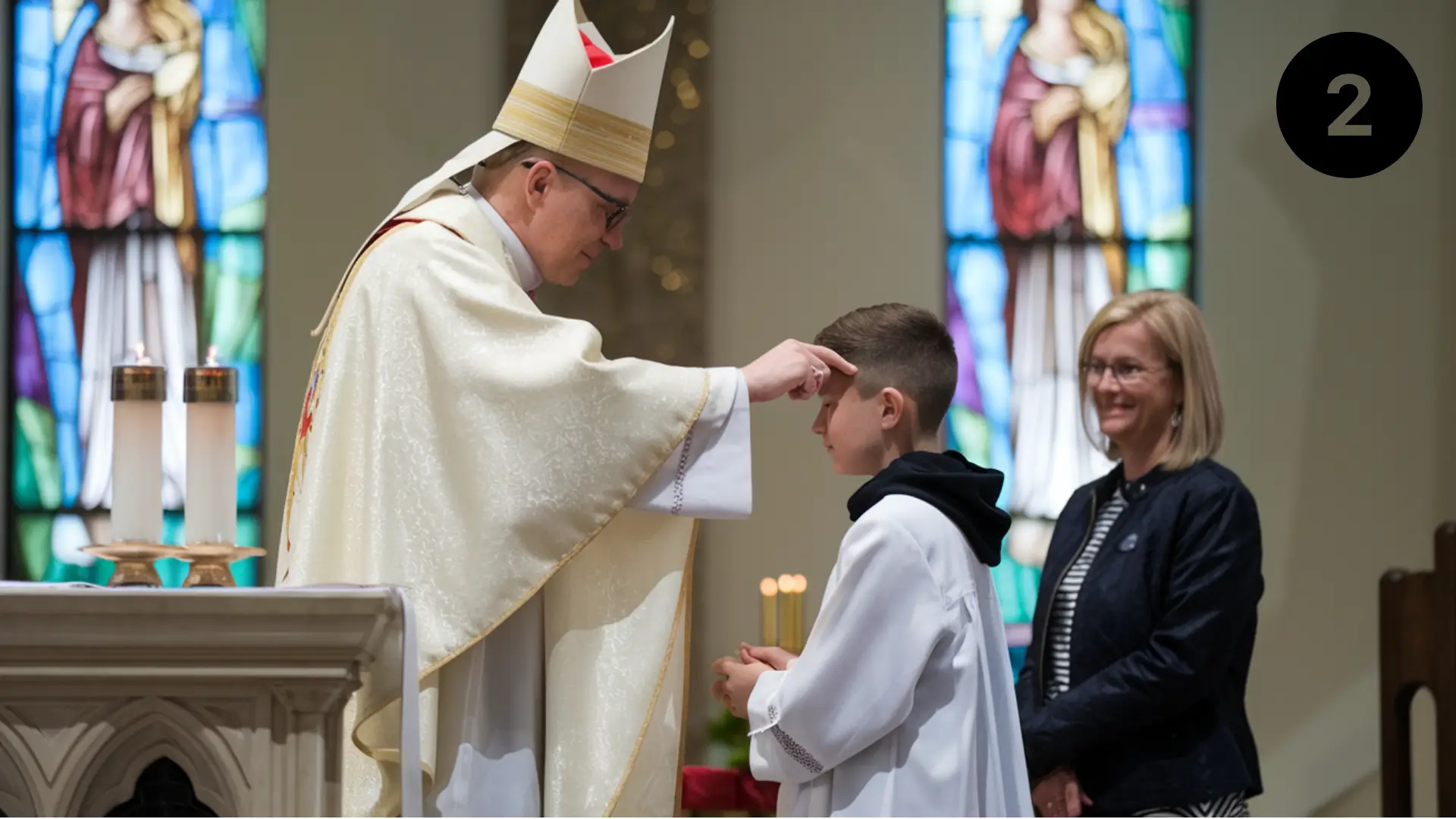
2. Confirmation
Confirmation strengthens the grace received at baptism. This sacrament involves the laying on of hands and anointing with chrism oil by a bishop. It seals the individual with the gifts of the Holy Spirit, empowering them to live out their faith more fully and to witness to Christ in word and deed.
Confirmation is usually received during adolescence, typically between the ages of 12 and 17, depending on the diocese’s guidelines. Preparation classes are often required to educate candidates about the faith and the responsibilities that come with this sacrament. While a bishop usually administers Confirmation, he may delegate this responsibility to a priest in certain circumstances.
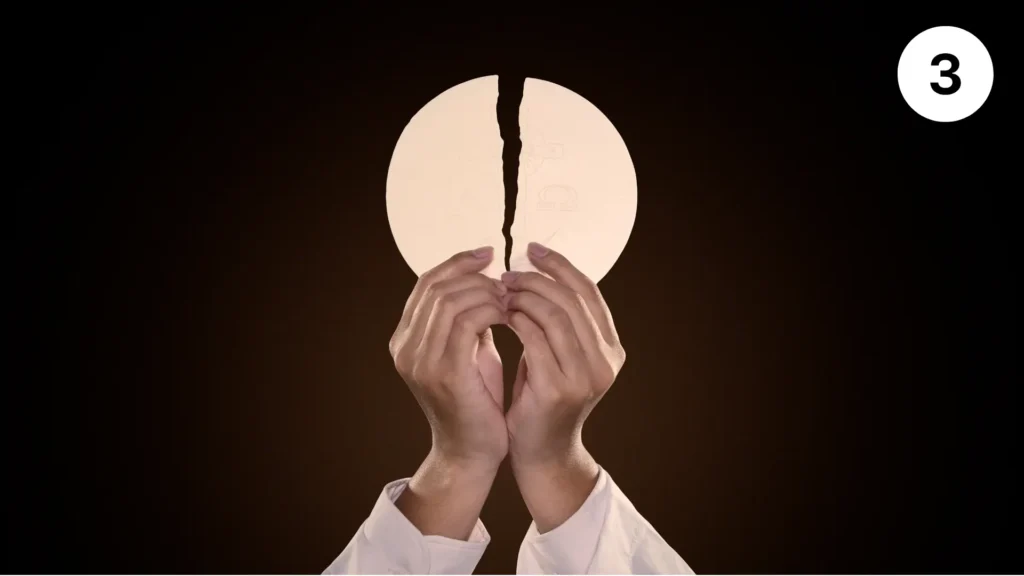
3. Eucharist
Also known as Holy Communion, the Eucharist is considered the heart of Catholic worship. Catholics believe that the bread and wine consecrated during Mass become the actual Body and Blood of Jesus Christ—a process known as transubstantiation. Receiving the Eucharist unites the faithful with Christ and each other, providing spiritual nourishment and grace.
First Holy Communion is typically received around the age of seven or eight, after the child has reached the age of reason and has undergone appropriate catechetical instruction. The sacrament can be received daily at Mass, provided the individual is in a state of grace. A priest consecrates the Eucharist during the Mass, and communion may be distributed by the priest, deacon, or trained extraordinary ministers of Holy Communion.
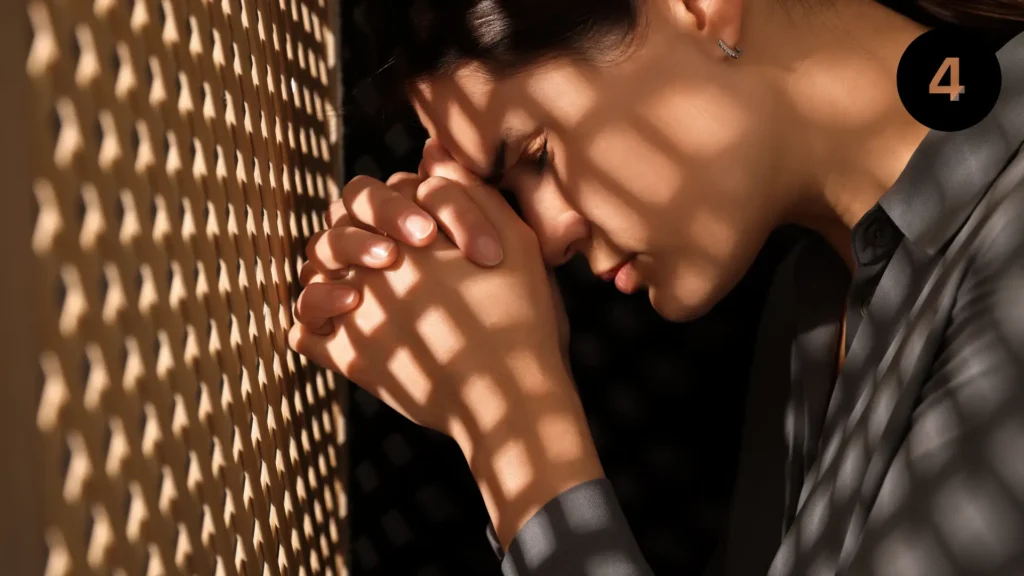
4. Reconciliation (Penance or Confession)
The Sacrament of Reconciliation offers believers the opportunity to confess their sins to a priest and receive absolution. This sacrament emphasizes God’s infinite mercy and the importance of personal repentance. It restores the individual’s relationship with God and the Church, offering spiritual healing and peace.
Catholics are encouraged to participate in Reconciliation regularly, with the Church requiring it at least once a year or whenever one is conscious of committing a mortal sin. The sacrament is first received before First Holy Communion, typically around the age of seven. Only a priest or bishop can administer Reconciliation, as they have been granted the authority to absolve sins through their ordination.
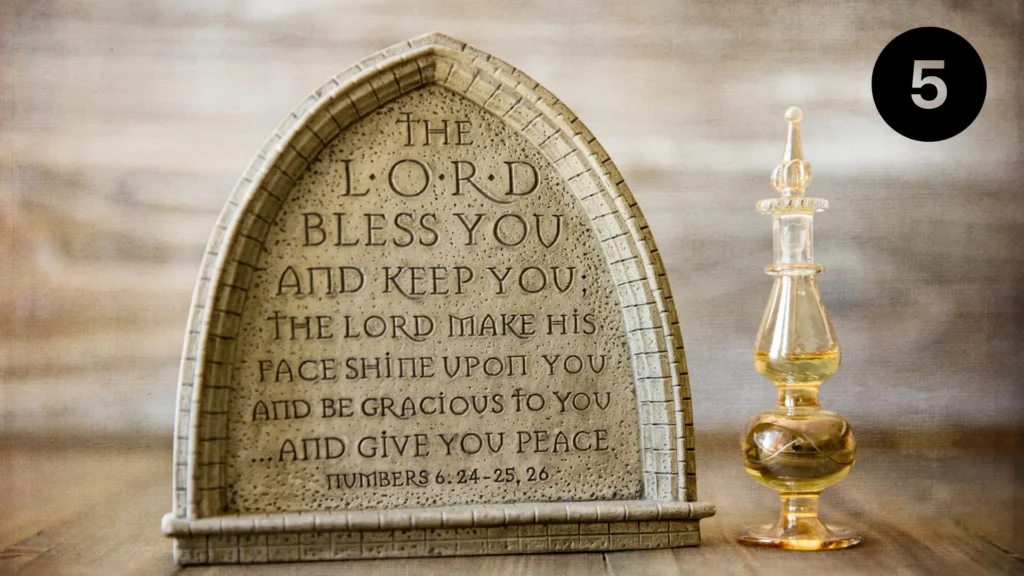
5. Anointing of the Sick
Formerly known as Extreme Unction, the Anointing of the Sick provides comfort and grace to those who are seriously ill or facing major surgery. Through prayers and anointing with blessed oil, the sacrament offers spiritual and sometimes physical healing. It assures the sick of God’s presence and support during times of suffering.
Anointing of the Sick can be received by any baptized Catholic who is seriously ill, elderly, or about to undergo a significant medical procedure. There is no limit to how many times one can receive this sacrament; it can be repeated if the person’s condition worsens or a new illness develops. A priest administers the sacrament, often accompanied by the sacraments of Reconciliation and the Eucharist, especially when given near the time of death (collectively known as the “Last Rites”).
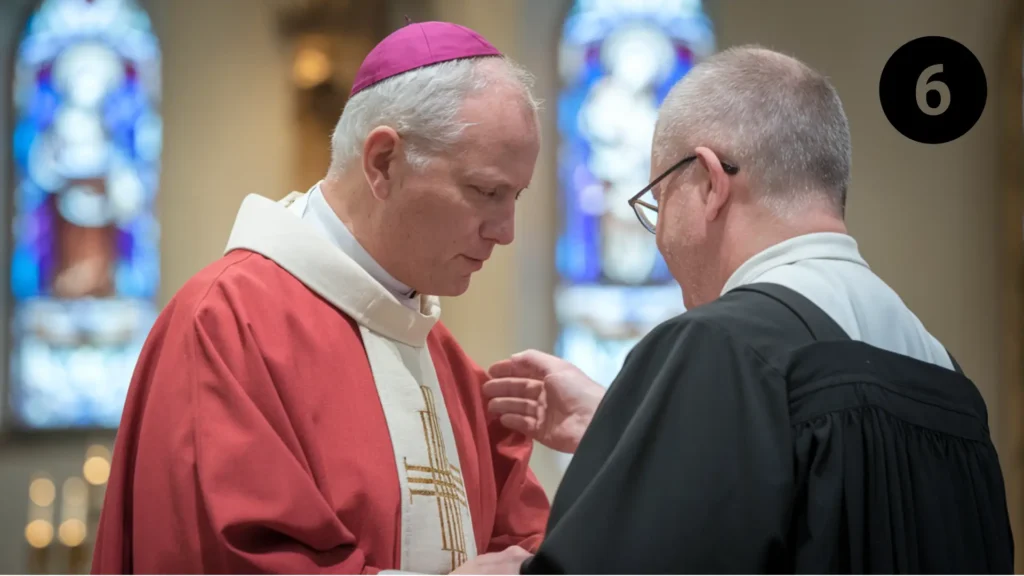
6. Holy Orders
Holy Orders is the sacrament through which men are ordained as deacons, priests, or bishops. This sacrament entrusts them with the responsibilities of preaching the Gospel, administering the sacraments, and shepherding the faithful. It continues the mission entrusted by Christ to the apostles, ensuring the ongoing leadership and pastoral care within the Church.
Candidates for Holy Orders typically undergo extensive theological education and spiritual formation in a seminary. The sacrament is conferred through the laying on of hands and the consecratory prayer by a bishop. Only baptized men can receive Holy Orders in the Catholic Church, and they commit to a life of service to God and the Church. In the Latin Rite, priests and bishops take a vow of celibacy, while in some Eastern Catholic Churches, married men may be ordained.
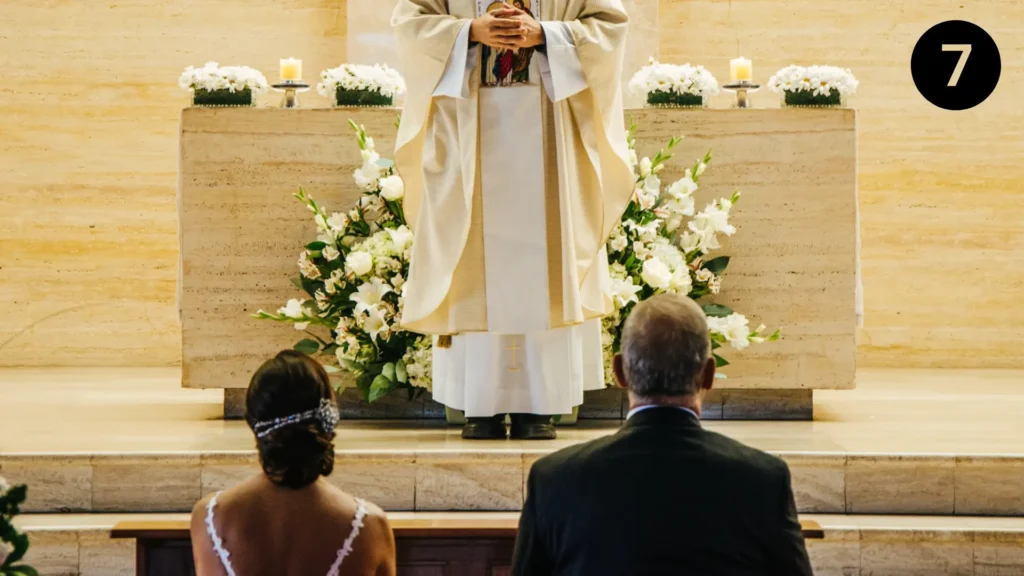
7. Matrimony
The Sacrament of Matrimony unites a man and a woman in a lifelong covenant of love and fidelity. Reflecting the union of Christ and the Church, marriage is a partnership aimed at mutual growth and the nurturing of family life. The sacrament sanctifies the couple’s commitment, providing grace to overcome challenges and to foster a loving household.
Marriage in the Catholic Church requires both parties to be baptized (at least one must be Catholic), free to marry, and give their consent willingly. The couple themselves administer the sacrament to each other through the exchange of vows, with a priest or deacon acting as the official witness of the Church. Pre-marriage preparation courses, often called Pre-Cana, are usually required to help couples understand the sacramental and lifelong nature of their commitment.
Conclusion
The seven sacraments are integral to the spiritual life of Catholics, serving as channels of grace and markers of significant moments in a believer’s journey. They encapsulate the core beliefs of Catholicism, emphasizing the importance of community, forgiveness, service, and commitment to God’s will. Through active participation in the sacraments, Catholics seek to deepen their relationship with God and embody the teachings of Jesus in their daily lives.

